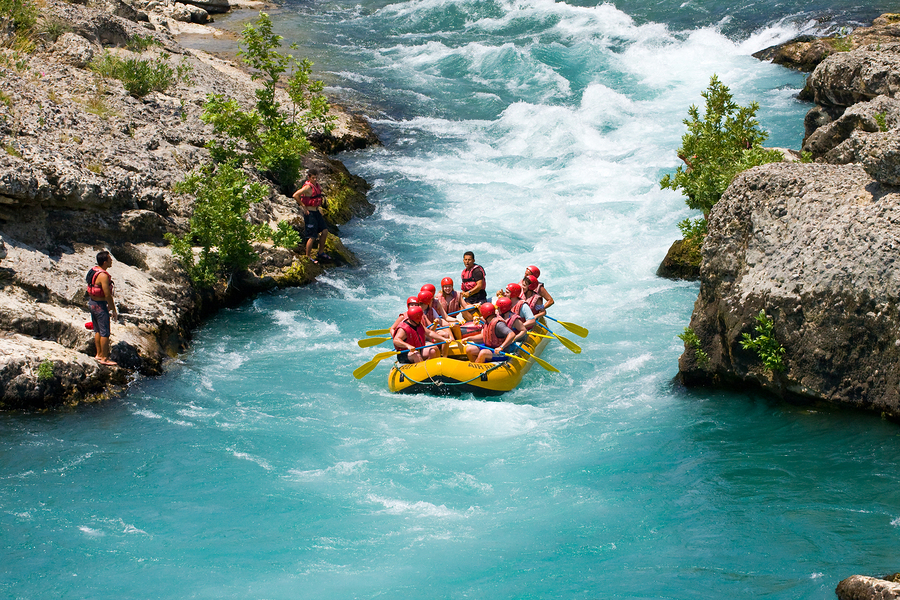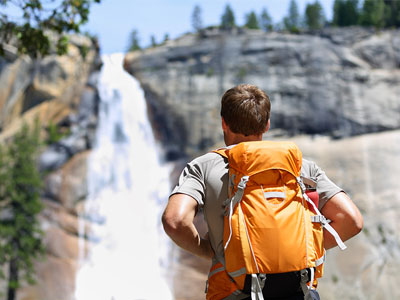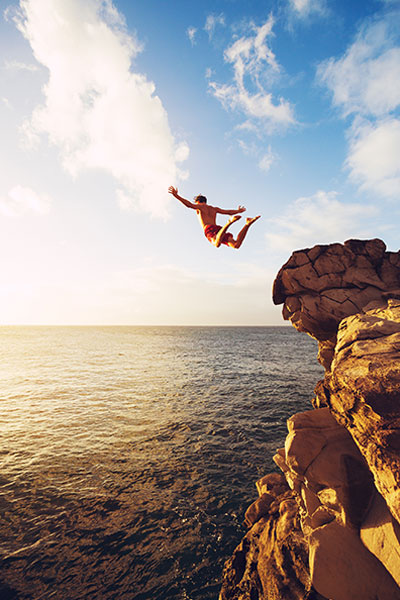Being outside in the wilderness and having unique experiences can have a tremendous positive effect on the mind. The feeling of fun and excitement that people have outdoors can transform their mental state and change the way they view the world. Our intrinsic connection to nature and our desire to experience novelty can make adventure therapy a very effective treatment for all kinds of mental health issues.

Adventure therapy is a very distinct kind of psychotherapy that employs the use of experiential education to help people with symptoms of various psychological and behavioral issues. It is an alternative kind of therapy that can be used in connection with regular talk therapy to get fast results.
The physical and emotional challenges of activities in the wilderness offer people a way to quickly experience personal growth through facing risks and actively solving problems.
What is the meaning of Adventure Therapy?
Adventure therapy is another name for wilderness therapy. To be precise, Wilderness Therapy is a subset of Adventure Therapy. It helps in re-organizing the brain using physical activities in an outdoor setting.
Outdoor therapy such as cycling, caving, bushwalking, river rafting, camping, hiking, mountain climbing, surfing, etc develops new skills and attitudes that are useful in real life. Adventure therapy programs involve working with others and hence help participants trust other peers and work in coordination to solve problems.
Such fun and often challenging activities create unique opportunities for individuals with mental disorders or addiction problems. Completing therapy adventures develops a sense of mastery and competence that leads to the re-organization of the meaning and direction of their life.
Wilderness therapy is all about outdoor activities but has its roots in several psychological factors including system theory, experimental learning, and Cognitive Behavioral Therapy (CBT).
Who invented Adventure Therapy?
Experimental education is a broad concept and is a mixture of learning theories and psychological theories. Albert Bandura, Kurt Hahn, Kurt Lewin, and John Dewey have huge contributions to learning theories and are the main theories that comprise experimental therapy.
John Dewey was the founder of the philosophical movement. He said that individuals grow and learn as they interact with the world. Adventure therapy does just that.
Who benefits from Adventure Therapy for Addiction and Mental Illness?
Adventure Therapy for addiction and mental illness has proven to be an effective tool to overcome a wide range of mental health disorders and substance use disorders. This includes
- Anxiety
- Depression
- Eating disorders
- Post-Traumatic Stress Disorder (PTSD)
- Social disorders
- Behavioral disorders
- Attention Deficit Hyperactivity Disorder (ADHD)
- Trauma
- Substance abuse
- Addiction
- Schizophrenia
- And more related mental health problems
Adventure therapy is good for people of all ages and genders. Teens and the Elderly have separate types of adventure therapy based on intensity and required physical activity. It also creates exciting and productive elements to family and relationship therapies by creating scope for interaction about adventure therapy experiences.
Different Types of Adventure Therapy
We have listed the most common adventure therapies that can be used to recover from addiction and mental health problems:

Wilderness Therapy:
Wilderness therapy includes an excursion into the wilderness to perform outdoor activities like hiking, biking, rock climbing, camping, etc. to heal mental health or behavioral issues.
Challenging Course:
In this outdoor therapy, participants engage in physical activities like unstable bridges, ropes courses, obstacle courses, and more.
Adventure Therapy:
Hiking, rock climbing, surfing, white water rafting, cycling, and other adventure activities are included in adventure therapy. Many luxury addiction treatment centers offer adventure therapy to help addicts take their next step towards better living and well-being.
Equine Therapy:
During equine therapy, addicted individuals interact with horses which help them develop skills such as communication, trust, empathy, love, and care.
How Do Adventures Therapy work?
Adventure therapy groups are an effective tool to overcome fears and transition your life from a state of illness to a state of normal living. It promotes emotional healing by eliminating the habits that you may use to overcome personal challenges. You are also removed from any environmental factors that may be contributing to your mental health disorder.
Here is how adventure therapy impacts your mind positively:
Confront Fears:
Wilderness programs such as rock climbing put your fears, lack of confidence, and physical challenges to test. By successfully completing the task with thorough planning, coaching, effort, practice, and perseverance, you become motivated to face and overcome other fears of life.
Living In the Moment:
Adventure based therapy such as Skiing, Rafting, and Whiteboarding teaches you to live in the moment. Your mind adapts to the changing world without any time for anxiety and fear. It is a healthy coping mechanism and counters most anxiety thoughts.
Teamwork:
Outdoor therapy such as Canyoneering requires you to work in teams and have a problem-solving attitude. The first step always seems difficult, but successfully completing such outdoor therapy gives a boost to your mental state. The same will hold true for real-life problems and you will be able to take your first step towards better living.
Assess Risks Properly:
Wilderness Adventure therapies such as mountain biking and river rafting challenges you to assess your risks properly and react to them as they approach. You develop faith in your instincts and training even when you are not aware of the next obstacle. It is an essential life skill and your adventure therapist will teach you how to master it.
Develop Social Skills:
Physical Adventure therapies such as mountaineering and backpacking serve as a platform to develop social skills. You learn to function in a group and conquer a common goal such as reaching the top of the mountain. You also learn social-pragmatic skills like effective communication, taking leadership, listening to questions and suggestions, and cooperation to overcome difficulties.
Other Personal Skills:
Adventure therapy done individually or in groups also encourages the following:
- Promote a sense of responsibility
- Build positive relationships
- Cooperate with others
- Conflict Resolution
- Promote self-awareness
- Increase Resilience
- Promote better communication with the therapist
- Emotional discovery
- Increase self-esteem
- Promote stress management skills
Effectiveness of Adventure Therapy
Various pieces of research indicate that adventure therapy is moderately effective in changing people’s ability to manage their behavior, emotions, physiology, and interpersonal relationships positively. It is crucial to note that results depend highly on your intrinsic motivation to achieve success. The higher the motivation, the bigger the impact will be of adventure therapy.
American Psychological Association (APA), AEE Therapeutic Adventure Professional Group (TAPG), American Counseling Association (ACA), Substance Abuse and Mental Health Services Administration (SAMHSA), and National Alliance on Mental Illness (NAMI) are organizations that endorse adventure therapy as an effective means of treatment for mental health disorders and substance use disorders.
Incorporating Treatment into Adventures

Adventure therapy programs are much more than just enjoying, and fun activities. Your adventure therapist guides you through the process and incorporates elements of psychological treatment into your experiences. You are encouraged to journal about your experiences and try to retain what you’ve learned in the wilderness to apply it to your personal life.
You will go through follow-up therapy sessions where you can speak about your experience, what you learned from it, and how it affected your mood.
You will also learn valuable survival skills that can help you feel more confident about your ability to face unpredictable or risky situations. You will feel stronger and more resilient after having gone through these activities and learned important lessons. It can be an amazing and transformative experience for you or others struggling with mental issues or substance use issues.
Healing and Growing through Adventure Therapy
If regular psychotherapy sessions do not provide desired results, adventure therapy can serve as an effective complimentary therapy. It is a powerful approach to healing individuals with mental health disorders and substance use disorders. Combining outdoor activities, social dynamics, and therapeutic interventions, adventure therapy encourages personal growth, self-awareness, and resilience. Challenging experiences within a supportive environment build coping skills, provide a sense of empowerment and help confront fears.
As a result, adventure therapy helps individuals towards a path of recovery and well-being.




